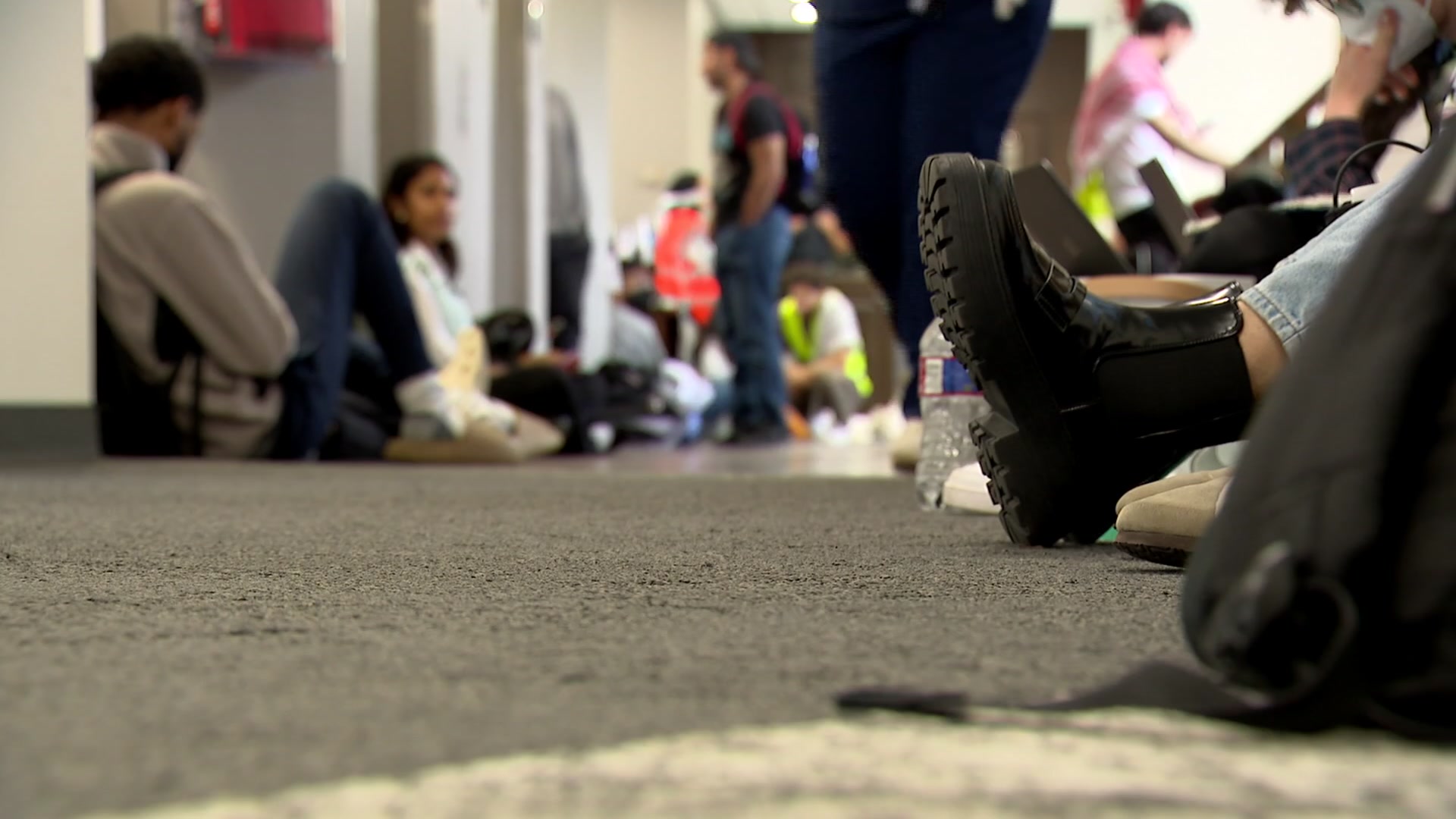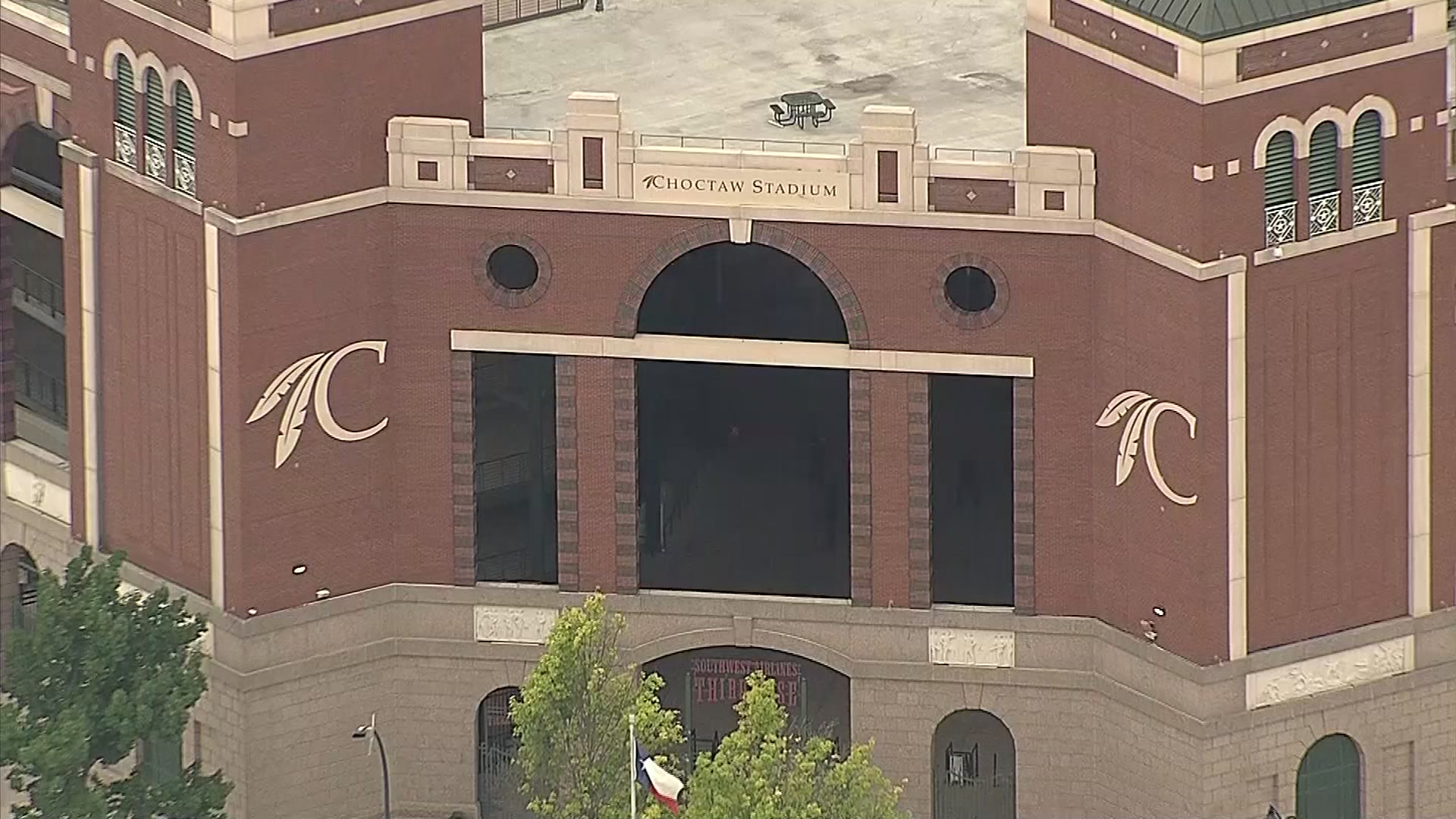The last time these soldiers of Bravo Company, 2nd Platoon, were together, they were tromping through the jungles of Vietnam on enemy patrol.
The San Antonio Express-News reports they were the core group of 37 men whom 2nd Lt. Perry Dotson led for four harrowing months in 1970.
On a recent Saturday in a San Antonio hotel, 49 years later, they gathered to remember a fallen brother-in-arms and renew a connection that time and distance could not break. They came from across the country, bringing wives and children with them.
San Antonio resident Ignacio Amaro, 67, and his wife, Irene. Edwin "Doc" Ayers, 71, of South Carolina and his daughter, Stacy Ayers Williams. Ernie Levesque, 70, of Massachusetts. Bill Steele, 68, of California. Armando Moralez, 68, of Indiana and his son, Jesus. Tim "Porky" Roland, 70, of McAllen and his wife, Carmen.
As they walked into the room, the men swarmed Dotson, 71, whom they hold in high regard. He helped them survive those hellish days in 1970, they said, thousands of miles from loved ones.
"The camaraderie was something," Levesque said. "You got everybody pulling together."
There was one notable absence among the friends: Pfc. Leonard Nitzsche, killed in action by an enemy sniper in 1970.
Local
The latest news from around North Texas.
The reunion gave the Vietnam veterans a safe space to talk and celebrate their survival. The meeting was set in motion years ago when Dotson sought out Nitzsche's grave site in Chester, Illinois. He said it was his duty to give the private who was in his command the proper farewell he didn't receive when he was felled by a sniper's bullet.
He found his first clue online, identifying a cemetery in Southern Illinois as Nitzsche's possible resting site.
In October 2017, he traveled to the small town and, with the help of the town clerk and a librarian in Ellis Grove, found the site where Nitzsche was buried. Dotson laid flowers at the tombstone, with a note: To friends and family of Leonard Nitzsche: "Len, we all appreciated your courage and selflessness. We will never forget you. Perry Dotson, Leonard's platoon leader."
"I don't want to ever lose the pain," Dotson said. "I don't want to lose his memory."
The clerk and librarian also helped him find Nitzsche's relatives. Last year, he returned to Illinois to speak with Nitzsche's sister, Linda Rader, and other family members.
The completion of his search set off phone calls and texts from other platoon members and relatives. Roland's wife saw a newspaper story online about Dotson's visit and contacted Rader, who gave her Dotson's phone number. Amaro and Roland had been keeping up with each other over the years. In September, the pair sent a selfie and text to Dotson that read, "Hey Lieutenant ... remember us?"
As word spread about a possible reunion, four more joined in. The group of seven convened in San Antonio, where the winters are warm.
"It's just a gift to get together," Dotson said, "It's indescribable. You take care of your buddy, we all go home, and that's what these guys did."
The men, with 2nd Platoon, Bravo Company, 2nd Battalion/3rd Infantry, 199th Light Infantry Brigade, operated 40 miles northwest of Saigon. They walked in single file, charged with adrenaline, ready to react to any movement.
They depended on each other and followed the lead of the young lieutenant from St. Paul, Minnesota. In October 1969, Dotson had caught a puck hit off hockey star Bobby Orr's stick at a game between the Boston Bruins and the Minnesota North Stars. On patrol, he carried the black disk for luck in the pocket over his heart.
Ayers recalled that on his second day in country, he took off his fatigue shirt and hung it on a tree branch. Dotson told him if he raised up to get it, he would get a round in his head or his chest. The lieutenant slid onto the ground and quickly pulled the shirt down.
"It was a training opportunity," Dotson said. "Fuel them with a little confidence and people survive."
The unofficial mission was fighting to stay alive for 365 days -- the length of their tour of duty.
"The ultimate goal was to get on the freedom bird and get back to the world," Levesque said.
The men said Nitzsche, a big, quiet farm boy with a slight smile, wanted to be the point man, the soldier who walked up front and kept an eye out for danger.
"The guys who walk point, in their hearts they know they're taking care of their buddies," Dotson said. "He wanted to do his share."
On April 8, 1970, the soldiers knew they were near a bunker complex. They were cautious as they walked down a shallow incline, when shots rang out from across a stream. Lynn Becker, the slack man behind Nitzsche, yelled, "Leonard's hit!" Dotson and Roland, the radio man, ran to the front but were pinned down by sniper fire.
"We're not going to leave him here," Dotson recalled the soldiers said at the time.
With suppressive gunfire from a Cobra helicopter overhead, and smoke grenades between them and the bunker, they were able to retrieve the soldier. The men kept an eye out for the enemy as Doc cleaned the body.
Twenty minutes later, the helicopter departed with Nitzsche. There was no time to say goodbye to their comrade. The men pushed their grief aside and continued their patrol.
"It was serious business," Ayers said. "A man just died. It brought us closer together."
After the war, the men went on with their lives. Ignacio worked for the U.S. Postal Service; Doc became a college professor and counselor; Dotson was a construction executive; Steele became a respiratory therapist; Moralez worked for a phone company and Levesque drove commercial trucks.
They carried the nightmares of the war home with them. They woke up slowly, were wary in areas that looked similar to Vietnam and grappled with the loss of those who never made it home.
Roland's wife said all she could do was listen and ask how she could take away his pain.
Moralez's son said many people have negative thoughts of Vietnam. For him, it's how his mother met his father, who was attending the wedding of a soldier he knew in Vietnam.
"I'm actually here because of the war," Jesus Moralez said.
Ayers' daughter said the reunion helped the men settle old anxieties from the conflict.
"I think it was really good therapy for all of them," Williams, 35, said. "It was long overdue."
The men still have one more task: to share their meeting with Nitzsche's sister and family. Their goal is to visit his gravesite as a group.
"It's amazing to me, the human spirit," Moralez said, his voice breaking. "You do what you have to do."



